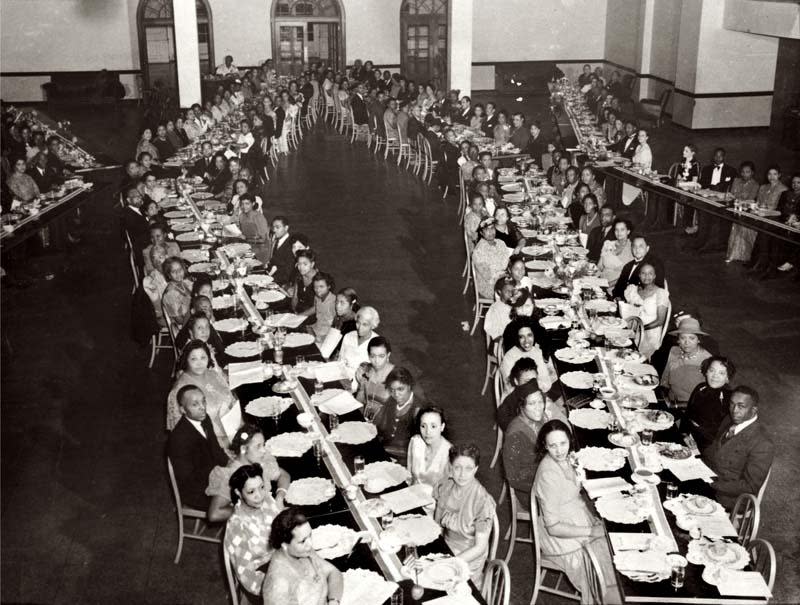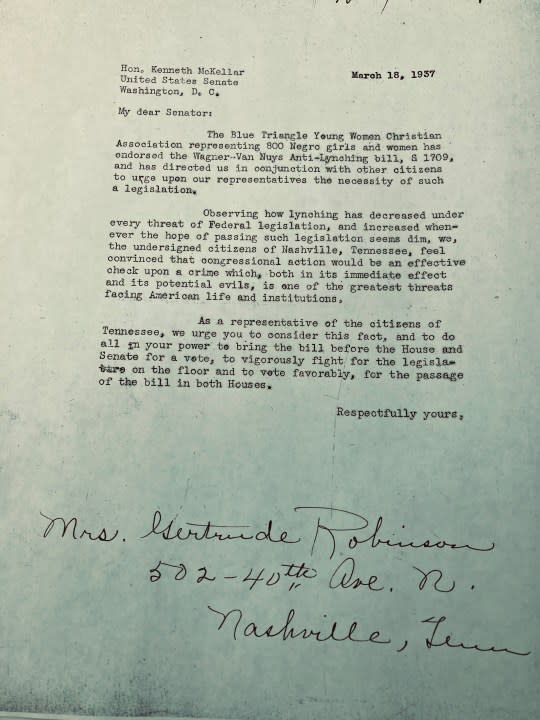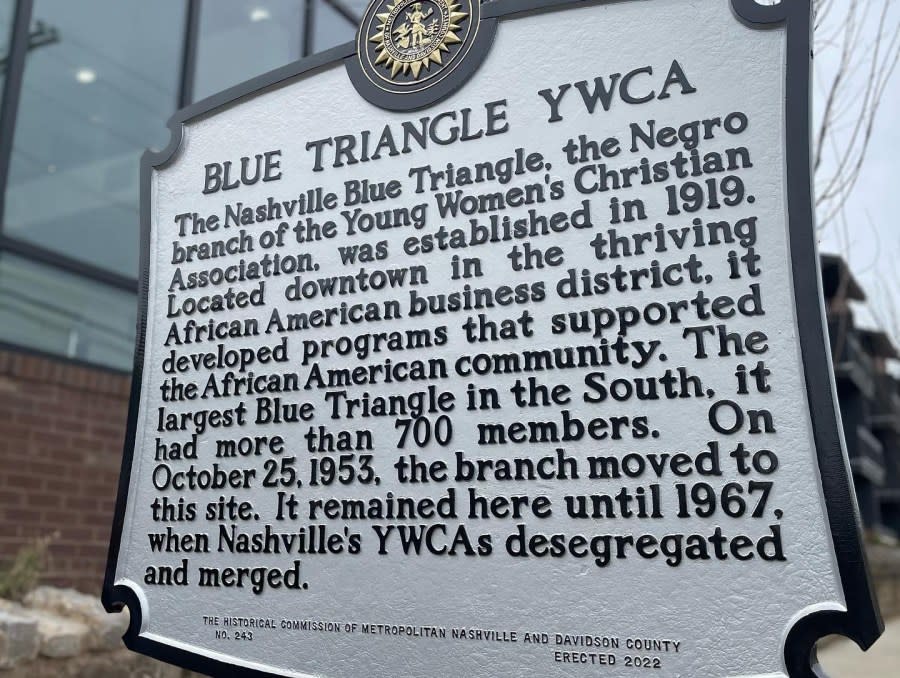The ‘Blue Triangle’ cemented in history as African American women who stood up for racial issues in Nashville
NASHVILLE, Tenn. (WKRN) — Often it’s the unsung heroes of history that leave the greatest impact. Equal parts nameless and faceless, their stories aren’t the ones made into movies, but one Nashville organization has taken a deep look into its past to honor an influential group of women.
For centuries, Nashville has been the backdrop for change, movements, and history. Inside the YWCA in Green Hills, you will find a history that’s been unlocked, telling the story of African American women on each wall.
“If it were not for the YWCA, I would not be alive today,” said Janie Greenwood Harris.
However, to understand what she went through, you have to go back to 1938 when she was born, and segregation was a part of everyday life.
Wilson Co. Black History Committee works to restore Pickett Chapel

“You knew that you were missing out on a lot of things because of segregation. For example one of the things that bothered me the most was the fact that I couldn’t go to the library. We had a colored library, and the wonderful main library that I could not go to, and the little black library I read almost everything in there,” Harris described.
After growing up in Winston Salem, North Carolina, Harris moved to Nashville to attend the Historic Fisk University. There, she would join a history-making organization.
“When I pledged, the group, the pledgees did a civic project, and our project was volunteering,” she said. “It was the Blue Triangle.”
“It was very important to me. growing up that was my only outlet. I was impressed with the women that I met. I just, I enjoyed it. It was very interesting when I was in high school. One of the first efforts at integration was within the YWCA. Our teen conference was integrated, and for some reason, I don’t know why, I was elected President for the coming year,” she continued.

Throughout the early 20th century, the Blue Triangle Branch developed social programs to support the African American community in Nashville. The branch stems from the YWCA. It was created during a time with the South was divided, as Blacks found a way to unite.
“First we have to have the backdrop of the South. The South was segregated, however, the women who were part of the white YWCA knew that the values of the YWCA would benefit people of color, and they said colored people at the time, and as a result, because of the rich community educated community, Blue Triangle was established,” explained Sharon Roberson, current President of the YWCA.
Nashville’s Blue Triangle was the largest in the South, with more than 700 members. The original building was located inside the Pearl Street Center, just a few blocks away from Fisk University.
⏩ Read today’s top stories on wkrn.com
“The women understood that we had to help the community as a whole as opposed to just helping a few, they wanted to help the future for the children, for the young mothers. They wanted to help and change the trajectory of our community,” Roberson explained.
As the branch found its place in the community, lynching and violence towards the African American community increased. The Blue Triangle stepped up.
“Lynching was so horrific, and I think often the victims of lynching were Black men, and I think it was important because often Black men were maybe afraid to speak out and often women have to be on the front line,” Roberson said. “Women said okay this may frighten you but we’re going to step into this space.”
The organization at the time wrote to a State Senator, endorsing an Anti-Lynching Bill, stating lynching was one of the greatest threats facing American life.

“The Blue Triangle tackled issues that affected the black community at that time. They looked at literacy because many of our people were left out of the educational system. So illiterate individuals were given educational training by the Blue Triangle branch. They addressed Anti-lynching legislation and wrote letters to National figures because they felt as though lynching was such a sin and such a ill of our society, they wanted that to be addressed,” Roberson explained, noting the historic times the organization went through, and how they challenged wrong-doing in the community. “They looked at skills that individuals needed that were mothers so they could properly take care of their children. They used skills that they learned as educators in the community, from our rich history.”
Women found a way to take a stand, as their work is now forever engrained in the history of Nashville.
“I think what it says is that we do not have to wait for other people to fight our battles, that we can organize ourselves that we have strength, and we can do things to change our community,” Roberson said.
“We remember our past because it will, it does impact what we do now, and what we will do in the future,” Harris explained. “I think that you have to make a contribution. You need to leave a footprint that you were here for something other than just living.”
The Nashville Public Library Downtown branch features the history of Blue Triangle and contains photos of the organization’s history through the years.
For the latest news, weather, sports, and streaming video, head to WKRN News 2.

